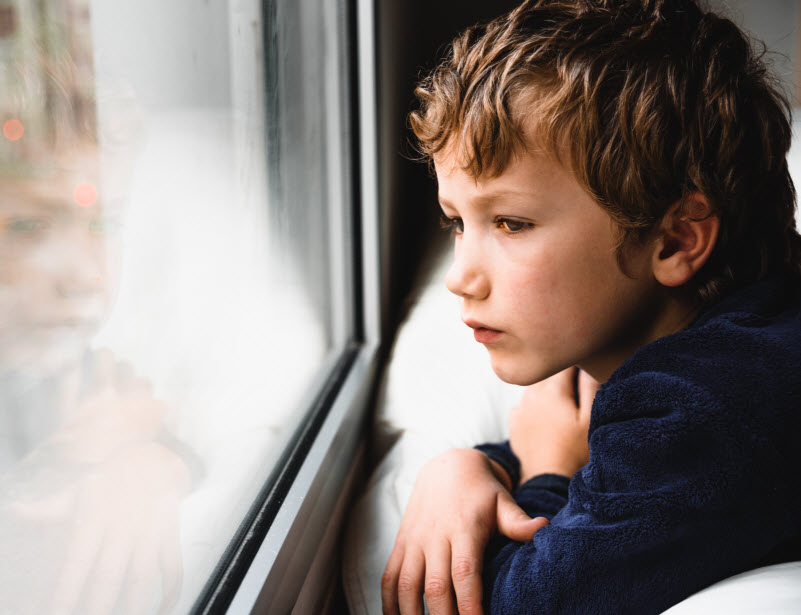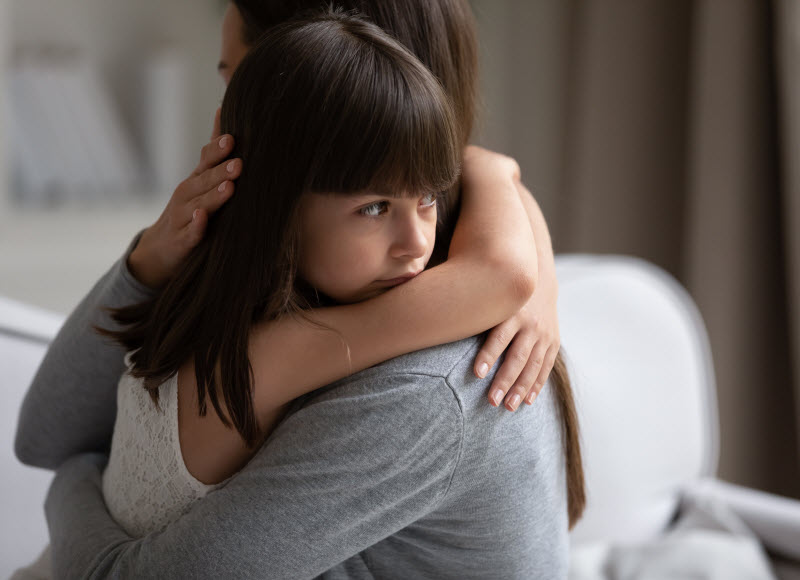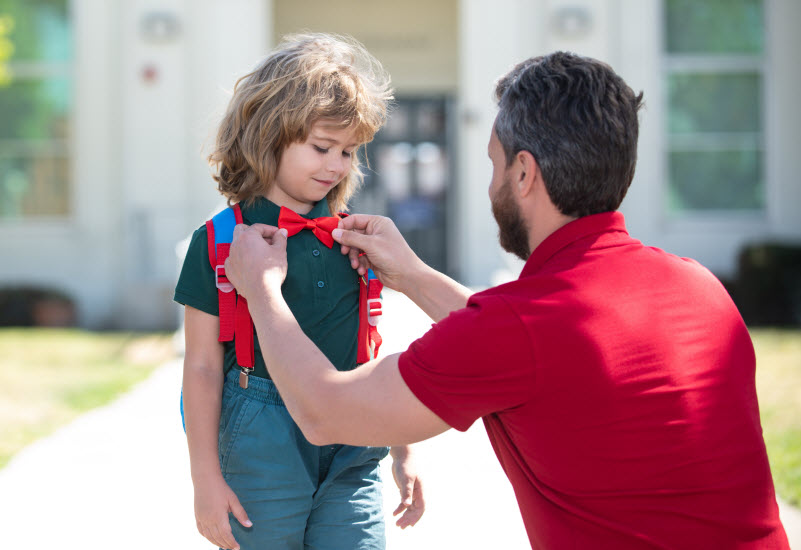
Have you ever left your child’s school so quickly it felt like you were fleeing a fire? After assisting many families experiencing difficulties saying goodbye, I found myself in a similar situation when one of the smaller members of our family decided school was not for them and that being with Mum was more fun. What a dilemma!
Separation anxiety is a normal emotion in children between ages eight and 24 months. This anxiety usually resolves when children realise their parents will return. In some children, separation anxiety persists beyond this time or returns later. It may be severe enough to be considered a disorder. Separation anxiety disorder commonly occurs in younger children and rarely occurs after puberty. Approximately three to four percent of children will develop separation anxiety disorder.

Symptoms and signs
Dramatic scenes typically occur at the time of separation. Separation scenes are typically painful for both the child and parent (or caregiver). Children often wail and plead with such desperation that the parent cannot leave, resulting in protracted scenes that are difficult to interrupt. When separated, children focus on their parent returning and are often worried their parent has been harmed.
Children may refuse to sleep alone and may even insist on always being in the same room as their parent. Children may complain of headaches, nausea or other illnesses when faced with separation.
Some children may even commit from the distress caused. The child may experience nightmares about separation, death or loss (eg. being kidnapped or in an accident) and may have associated sleep difficulties. These children will do whatever is in their power to avoid separating from parents by avoiding school, sleeping alone and declining invitations from their friends for sleep-overs.
Interestingly, the child behaves normally when their parent (or caregiver) is present. This behaviour can sometimes give a false impression that the problem is minor. The child’s anxiety can be made worse by the parent’s anxiety, which assists the child’s level of anxiety grow. Sometimes this cycle can be short-circuited only by sensitive and appropriate psychological treatment for the parent and their child.

What parents can do
- Be confident your child will overcome the problem and let your child know you believe in them.
- Try not to let your child see you are worried.
- Listen to your child and encourage them to tell you about their feelings and fears.
- Let them know you understand how they feel.
- Don’t make fun of their feelings.
- Telling them big kids do not get scared is unhelpful – everyone is afraid sometimes.
- Ignoring your child’s feelings may lead to your child finding it hard to tell you when they are worried.

Building a good relationship with your child's teacher
Check with the teacher what is happening at school. It is important that a good relationship with your child’s teacher is developed. You and the teacher are the most important adults in your child’s life whilst you child is at school. Positive change will occur when your child understands you have confidence and share a trusting bond with their teacher.
In Cairns, we are fortunate to have Guidance Officers and School Counsellors who can support teachers and children overcoming these difficulties. Contact with these key support people can be organised via your child’s teacher or by making enquiries at the school administration office.
Helpful tips for saying goodbye
- Make sure your child knows when you are leaving and when you will be back.
- Make the goodbye brief – don’t drag it out.
- When your child becomes distressed on separation, briefly remind them of the plan you have developed (eg. coping skills, a reward for being brave) and when you will return.
- Let your child know you will be doing something boring while they are at school.
- Be reliable and on time when picking up after school. Have a plan for times when you might unavoidably be late.
- Settle your child in an enjoyable activity before leaving. For example, start playing puzzles or, with their teacher’s support, have your child engage in helping tasks to assists other class members.
- Sometimes it is helpful if your child says goodbye to you at home and a friend’s parent takes them to school.
- Let the child take something of yours in their pocket to look after during the day. (It need not be something valuable but needs to be something your child knows is yours and that you would not want to lose.)
- Give you child as much control over the problem as you can ask them what they think will help and then try that.
- Keep a relaxed/happy expression on your face. If you show your child worried and distressed facial expressions, they will think the place is not safe.
https://issuu.com/cairnsparentingcompanion/docs/cpc_final_summer2011-lr/28
If you are worried about your child’s separation anxiety and need professional guidance, contact us. Real more psychology articles.


